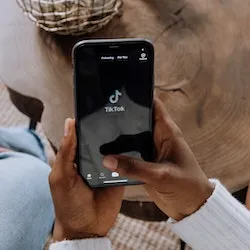
Level 1:
TikTok may not be allowed on phones in Montana soon. They think the app is taking people’s information without asking. This makes them worried that China might use the information for bad things. Other states have already banned TikTok from government phones, and the same has happened in the White House. But stopping people using TikTok is hard. There is a new law that could help instead. It could make sure companies tell people when they take their data. We need to make sure people are safe online.
Level 2:
Montana is trying to stop people from using TikTok on their phones. They worry that the app could take people’s personal information without them knowing and send it to China. Many other states have already banned TikTok from government phones, including the White House. However, banning the app might not be a good solution. There is a proposed law called the American Data Privacy and Protection Act which would make sure companies tell people when they collect their data. It is important to protect people’s personal information so that everyone can stay safe online.
Full Story:
Lawmakers in Montana have initiated a bill that will make it illegal to download TikTok on mobile devices. The legislation would impose fines on TikTok and app store owners, Apple and Google, for allowing downloads. The move is part of a larger push by U.S. politicians to keep Americans from using the popular short-form video app, with over 25 states already having banned the app from government phones.
The concern among lawmakers is that TikTok collects user data without their consent and sends it back to China, where its parent company, ByteDance, is located. This has led to fears that the Chinese government could use this data for espionage or other nefarious purposes. The White House has also expressed similar concerns and has threatened to block the app unless ByteDance agrees to sell it.
While these moves may seem like a way to address national security concerns, they are likely to be ineffective and face legal challenges. A more promising solution is a proposed federal privacy bill called the American Data Privacy and Protection Act. This legislation, which has bipartisan support, aims to protect Americans’ personal data from being collected and shared without their consent.
The American Data Privacy and Protection Act would give consumers more control over their data by requiring companies to disclose what information they collect and why, as well as giving users the ability to opt-out of data sharing. The bill would also establish penalties for companies that violate these rules.
The proposed law has been praised by privacy advocates, who argue that it is necessary to protect Americans from the growing threat of data breaches and cyberattacks. However, critics argue that the bill could stifle innovation and harm businesses that rely on collecting data to provide personalized services to their customers.
Despite these concerns, the need for a federal privacy law is becoming increasingly urgent. With the proliferation of smartphones, social media, and other digital platforms, there is more personal data available than ever before. This data can be used for a wide range of purposes, from targeted advertising to identity theft.
Moreover, the COVID-19 pandemic has only accelerated the shift towards digital technologies and made personal data even more valuable. As businesses and government agencies collect more data from individuals, the risk of data breaches and other cyberattacks increases.
In light of these challenges, it is clear that a federal privacy law is necessary to protect Americans’ personal data and maintain cybersecurity. While banning TikTok or other Chinese-owned apps may offer a temporary solution, they are unlikely to address the underlying issues and could create more problems in the long run.
Instead, policymakers should focus on creating legislation that balances the need for innovation and economic growth with the need to protect consumers’ privacy and security. By doing so, they can ensure that America remains at the forefront of technological innovation while safeguarding the rights and interests of its citizens.
Questions:
What is the reason behind Montana’s move to ban TikTok on mobile devices?
How are other states and the White House dealing with the issue of TikTok collecting user data?
What is the RESTRICT act and how does it aim to address foreign threats to information and communication technology products and services?
What is the American Data Privacy and Protection Act and how will it protect consumers’ personal data?
In your opinion, do you think a federal privacy law like the American Data Privacy and Protection Act is necessary?
Fill in the Blanks:
proliferation, espionage, nefarious, cyberattacks, bipartisan
This has led to fears that the Chinese government could use this data for ________ or other ________ purposes.
This legislation, which has ________ support, aims to protect Americans’ personal data from being collected and shared without their consent.
The proposed law has been praised by privacy advocates, who argue that it is necessary to protect Americans from the growing threat of data breaches and ________.
With the ________ of smartphones, social media, and other digital platforms, there is more personal data available than ever before.
Vocabulary:
proliferation - the rapid or continuous spread of something, such as a disease, ideas or technology,
cyberattacks - an attempt by hackers to damage or destroy a computer network or system,
nefarious - wicked or criminal,
espionage - the practice of spying or using spies to obtain secret information,
bipartisan - involving the agreement or cooperation of two political parties that usually oppose each other’s policies,
opt-out - refers to the process whereby users can choose not to have their data collected or shared by a company,
data breaches - when sensitive or confidential information is stolen, viewed, copied, or used by unauthorized individuals,
privacy advocates - people who campaign or work to protect individuals’ right to privacy,
targeted advertising - advertising that’s based on personal characteristics and interests gleaned from your online activity,
identity theft - the fraudulent acquisition and use of someone else’s personal information,
proposed law - a draft of a law that has yet to be enacted into legislation,
personalized services - bespoke services tailored to meet a specific individual’s needs.




